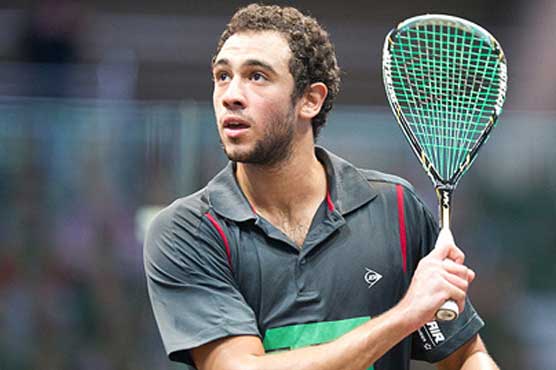Squash: Ashour, Shorbagy meet in all-Egyptian world final

Ramy Ashour will face his compatriot Mohammed el Shorbagy in the final of the world championships.
Ramy Ashour, the unpredictable squash genius from Egypt, reached the final of the world championships, ended the titleholder s defence, and made sure of regaining the world number one spot -- all in one go.
Ashour also frustrated the two top Englishmen simultaneously.
By winning 11-9, 11-5, 9-11, 11-8 he halted Nick Matthew s bid for a hat-trick of world titles and guaranteed that he will depose James Willstrop from the top of the rankings.
That is certain irrespective of the outcome of Friday s final. That is against a surprise survivor - his compatriot Mohammed el Shorbagy, a 21-year-old Bristol-based student who has become the great new contender.
Shorbagy delivered an up-and-down 9-11, 11-9, 12-14, 11-4, 11-8 triumph over Willstrop in almost two hours, first appearing likely to win in four games and then certain to lose in five.
By contrast Ashour s success was always on the cards, and only for a 15-minute spell when Matthew fought back bravely to lead 5-3 in the fourth was it in a great deal of doubt.
Typically though it still contained its share of drama.
"I feel right on top of the world," Ashour said. "After being injured in the last two world championships it feels very good to be back in the final. And he (Matthew) was the most impressive player on the tour and has had a good attitude to the sport."
But Matthew did not entirely return the compliment.
Instead he made known his disapproval that Ashour several times ran into him, knocking him over, eventually in the fourth game causing the referee to give the Egyptian a conduct warning.
"That s the fifth or sixth time it s happened," Matthew lectured the official. "I wonder if the roles had been reversed how long it would have taken to award a point." His remark hushed a crowd which had supported Ashour vociferously.
Afterwards Matthew disappeared for a few minutes because he felt "too emotional" to talk, but returned to give credit to Ashour s remarkable brilliance.
"It s difficult because I don t like losing. I am gutted, but he has been the best player in the world for a while now," Matthew acknowledged.
"He lobbed quite a lot and threw my game plan a bit. I have to go away and find a way to respond."
Shorbagy endured a ferocious switch-back ride to survive. He was 4-1 up in the fourth game but hit a wall, and was then 3-6 down in the fifth before he somehow summoned the will and physical resources to drag the match back.
It took him almost two hours thrust and counter-thrust, and of rallies which seem to go on for ever before he chiselled out the finest victory of his career.
"I was cramping in my hamstrings, cramping in my quads and in my calf muscles - I was cramping everywhere," Shorbagy said.
"But I could feel how tired he was. I kept looking at his face and I could see it. It enabled me to feel that I could still push."
Remarkably, and crucially, he retained some of his speed to the front, even though he had had an emotionally draining encounter in beating his compatriot Karim Darwish, former world number one, the day before.
After that Shorbagy had spoken on the phone to his coach, the former six times British Open champion Jonah Barrington.
"Jonah said that this was good," he said. "But not good enough."


